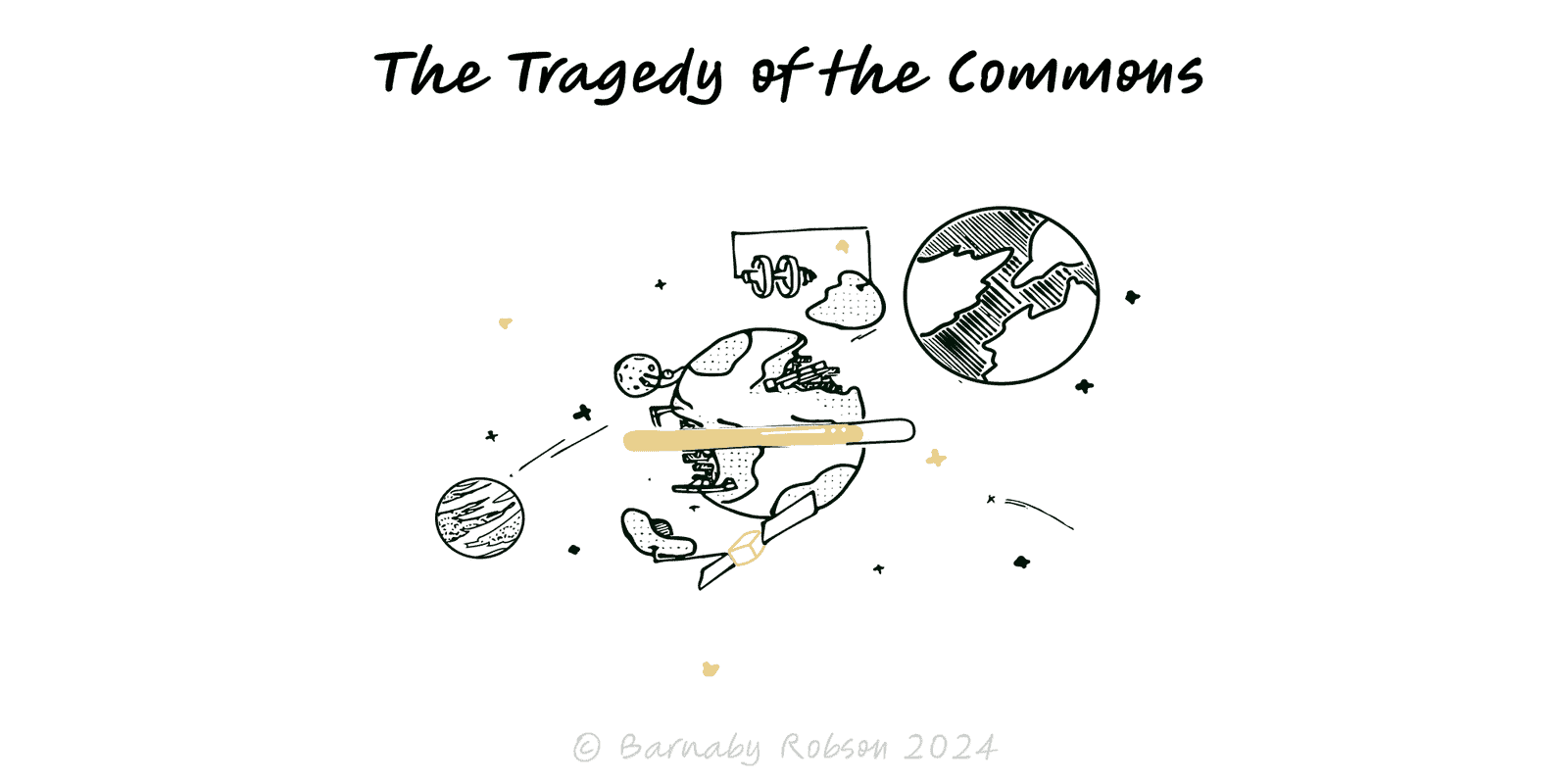The Tragedy of the Commons
Garrett Hardin (1968), building on William Forster Lloyd (1833); extended by Elinor Ostrom (1990)

Hardin’s “tragedy” describes the failure mode of common-pool resources (fish stocks, grazing land, groundwater, roads): each user captures the full benefit of an extra unit extracted while the cost is spread across everyone. Left as open access, rational choices sum to collective ruin. Crucially, the tragedy is not inevitable: Ostrom showed communities can sustain commons with well-designed rules, monitoring, and sanctions tailored to local conditions.
Incentive mismatch – marginal private benefit > marginal private cost; the externality is unpriced.
Rivalrous + hard to exclude – one user’s take reduces what’s left; barriers to entry are weak.
Information & enforcement limits – uncertain stocks, delayed feedback, costly policing.
Open access vs common property – open access lacks boundaries; common property has members, rules, and enforcement.
Dynamics – overshoot → depletion → collapse; recovery can be slow or impossible (thresholds).
Natural resources – fisheries, forests, rangelands, groundwater, wildlife.
Congestion – roads, parking, bandwidth, spectrum, popular trails.
Corporate “internal commons” – codebases, shared services, brand trust, on-call time.
Environmental public goods – climate sinks, air quality (managed via caps, pricing, or treaties).
Define boundaries – the resource and who can use it (permits, membership, geofencing).
Set a cap from science – total allowable catch/withdrawal consistent with regeneration and risk.
Allocate rights – quotas, ITQs, water shares, or time slots; make them transferable where liquidity helps.
Price the externality – congestion charges, emissions taxes, access fees.
Monitor & enforce – transparent measurement (satellite, sensors, ledgers), graduated sanctions, and impartial conflict resolution (Ostrom).
Fit local context – co-create rules with users; align to norms and practical constraints.
Create club goods – convert open access to member-only with standards (co-ops, fisheries management areas).
Design for equity – guard against capture; share rents; support small users during transition.
Adapt – review quotas and prices with stock data; tighten early if indicators deteriorate.
Central plans without buy-in – rules that ignore local knowledge get evaded.
Paper rights without monitoring – quotas fail if catches/withdrawals aren’t measured credibly.
Common-mode risk – multiple “redundant” users still collapse the same stock.
Perverse incentives – “use-it-or-lose-it” rules, flat fees, or subsidies that spur overuse.
Equity blind spots – reforms that benefit incumbents and squeeze small players breed non-compliance.
Rebound effects – efficiency gains (better nets/engines) can increase total extraction unless the cap tightens.